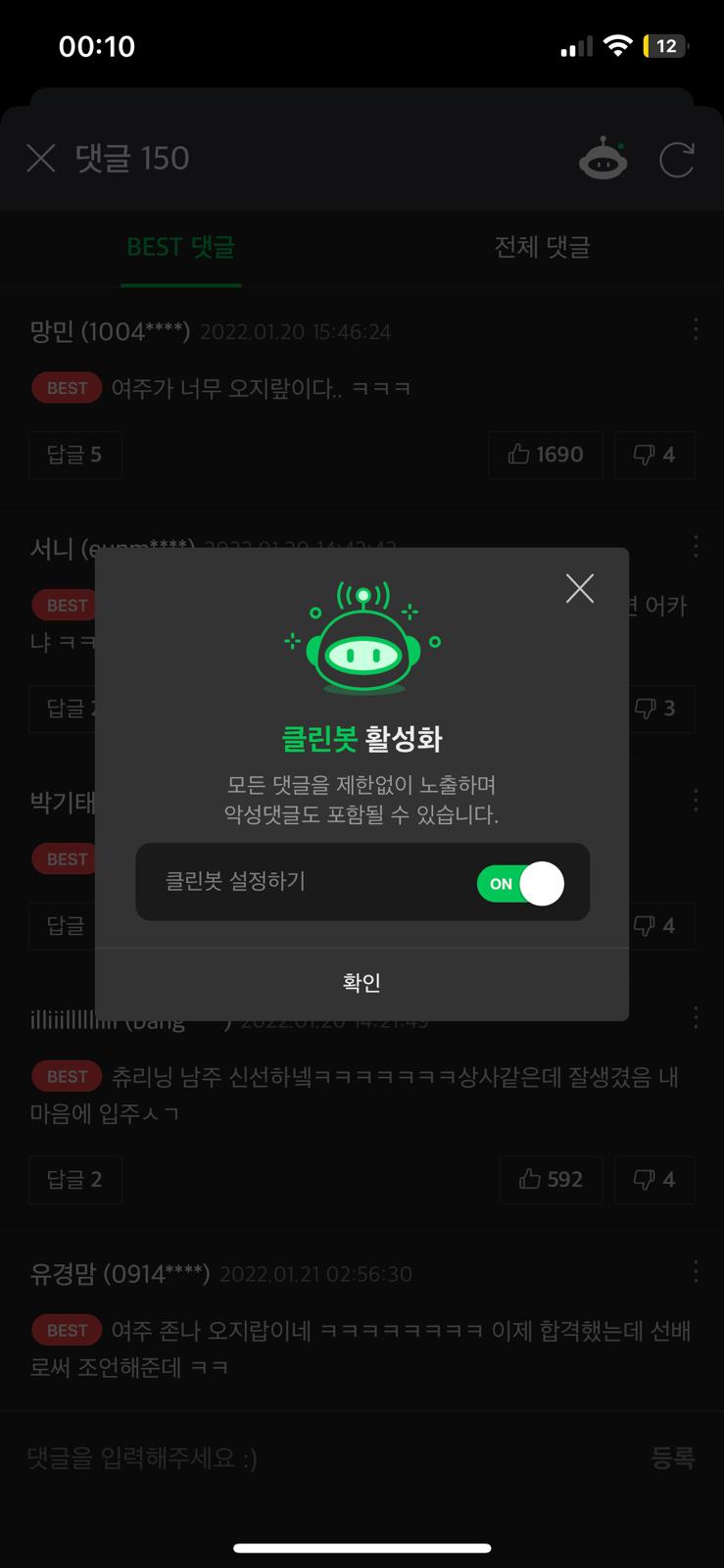Audio
Transcript
Disclaimer: this is our first podcast ever so beware of a lot of stopwords and awkward phrasing. To make this podcast more easily understandable and accessible, please find a cleaned transcript below. With this said, enjoy!
Florence: Welcome to the FLA(c)K podcast! We are Florence, Lena and Alice and today we will continue the story where we left it off in the previous podcast. Thanks for listening!
Alice: Naver Webtoon’s design makes for an interactive experience where users and creators can interact in the comment section beneath each episode. I think that is very interesting because it is like social media, right? The comment section creates an environment for the reader to talk about the episode, discuss, and speculate about upcoming episodes. And there have been many instances where the comments can change the upcoming storyline. The comment section can’t be underestimated: you can contribute a lot as a fan. However, it can also have negative sides to it: when the author of True Beauty (여신강림), a very popular webtoon, showed her face to the public she got a lot of hate comments in the comments section. Not about her work, but about her appearance.
Florence: That’s very mean.
Lena: They obviously did not get the point of the webtoon.
Alice: Yes, because they didn’t find her pretty. The drama was about beauty, so people were comparing her with the character in the drama (note: the main character of the webtoon shares a high level of resemblance to the author). I don’t think it’s fair at all. This took a high toll on her mental health and she mentioned it in a YouTube episode of Breakfast with Tiffany (티파니와 아침을). A really interesting thing about the comment section though is that there’s an option to turn off malicious comments, but there’s no option to disable the comment section. I think that’s a really big problem.

Source: screenshot of Lena’s phone
Florence: I think so too. As an author I think it’s really difficult to disregard the comment section completely, because it’s normal to want some feedback on your work. But if it’s not left unmoderated then you’re better off having the option of not seeing it altogether, you know?
Alice: Yeah, so I don’t know if other platforms of webtoons do have a comment section. Do you know about that?
Florence: On Lezhin you have no comments, Lezhin is an exception in that regard. It’s interesting to note, because in Korea, the media and the media environment, especially in news reporting, is so toxic that most news websites have the option to turn off the comments completely. So this grabbed our attention.
Lena: I did see though, that you cannot turn it on for entertainment news. There is no comment section for entertainment news, but for other news you can, I think. not turn it off. It depends on the platform however.
Florence: Oh my, this would require another podcast with a very interesting topic. Thank you.
Alice: Thank you. Yeah, yes, as we discussed yhe comment section can have a positive effect, but also a very negative effect on both author and reader.
Florence: Yes. Also, the amount of likes and support that you get as a webtoon author can lead to great opportunities for you as an author. However, the creation model puts you in direct competition with other authors. Let me explain the model of the platforms works with multiple leagues. So you start off as an amateur in the amateur league and you can work your way up until the Pro League or the league where the platform basically sponsors you to be producing. Once in this league the platform gives you marketing. But in order to get there you have to be popular. I saw however that the stories that are popular tend to do the same things or be wildly different. You could argue then that webtoons have a limited capacity to be creative because of this model of creation. This model is also a very competitive model as we saw a few months ago: the webtoon artist of Solo Leveling died of overworking. Well again, it was cancer if I recall correctly (note: welp, it was a brain hemorrhage, read more about it here).
Lena: I think they had cancer and they just didn’t really treat it that well and then…
Florence: Yes, so you could argue that his job killed him.
Lena: It’s pretty toxic.
Florence: Yes, let’s keep it at that. So time for the next section. Indeed, last semester we studied in South Korea for six months, seven months, something in between. And what did we notice? Alice I give the floor to you because. You are the newest to webtoon culture I think.
Alice: Yes, I’m the newest and unlike you guys I read it I think once a week during commutes, so it’s not very much I don’t know how much you guys read though?
Lena: I just read webtoons all the time. Like my 3 hour long ride on the train this morning was all to read my webtoons and to catch up on new chapters.
Florence: Oh my. That’s great I personally don’t have to commute a lot, and when I commute it’s usually on data so I avoid it. But if I had a bigger data plan you would see me read webtoons a lot.
Lena: Yeah, right, right?
Florence: So what I do is when I have some time to spare, I usually open the app and try reading some episodes.
Lena: It’s also relaxing between work. When you’re writing an essay or something and you’re like “now I’m going to take a break.” I just instantly open Webtoon and I’m like “what is new?”
Florence: So really, it’s really like a snack as said in the previous podcast. It ties into snack culture.
Alice: Yes. So, for me when I came to Korea, I noticed that during commute a lot of people were on their phone. But! When I glanced over – like not just looking a bit – I saw that they were reading webtoons so I was very surprised. That is because in the Netherlands we are usually just on Instagram or on WhatsApp or watching YouTube videos. But here in Korea people were like reading. And I thought it was very cute for, for, I don’t know why. It was very interesting to see. Moreover I think that, especially in today’s landscape, technology has redefined reading culture. Due to that the attention span of a lot of people has become shorter. I feel then short episodes of webtoons can just be more digestible during commute for example.
Florence: It fits into the busy lifestyle and the short attention span.
Lena: Right. For example I can’t take a book with me to commute because it’s too heavy, it’s too big and one chapter is just too long. It’s just too long.
Florence: Depends on the book, some have very short chapters: the young adult genre for example.
Lena: That’s true, but all my books were long.
Florence: Alright, alright not going to argue with that. And also we remarked that you still have those manhwabang, the manhwa cafe, if you translate it. But there the emphasis is put on Japanese manga. However, you can still find some Korean manhwa and webtoons that are published on paper. And it must be said that due to webtoons being full color, the price of webtoons published offline is way higher than manga or manhwa for that case.
Lena: Yes, and I do like reading Japanese manga on paper because they’re made with the paper format in mind. But webtoons – they’re just made to read on your phone in color in one strip and it hits different when put on paper.
Florence: It gets pretty awkward when you have, for example, a time lapse that is a long scroll on your phone to really give off the impression of a transition in a webtoon. When put on paper, it just works awkwardly.
Lena: It’s like a couple of blank pages on paper.
Florence: It’s really a digital native format. It’s no wonder that there is so much time needed to adapt the medium onto paper. I think authors have to rethink their whole product from start to finish when publishing their webtoon in printed volumes.
Lena: I do think the manhwabang today though are more about the dating culture instead of the reading culture like in the past. But still it was a nice experience to go there.
Florence: The music was a bit loud, but the amount of content you could peruse made up for that.
Lena: That’s true.
Alice: It definitely helped our Korean by reading in Korean.
Florence: I think we’re over the time limit.
Alice: I think so too.
Lena: Yes, it’s time to go to school!
Florence: Indeed, it’s currently 11:40 AM, so we have class in 35 minutes. Let’s pack our bags and go. Thanks for listening to this long podcast. We hope to see you again. For the second installment. I think we’ll talk more about other platforms and the international aspect of them (Webtoon). Yes, thank you.
Lena: See you next time!
Alice: Bye bye!
Florence: Bye bye. This was FLA(c)K!
What are your thoughts on this topic? What do you think about the interplay of content creation and commentary sections? Have you ever commented on a creation online? Should these comment sections be moderated or left untouched? Let us know in the comments!
Sources
[1] https://www.youtube.com/watch?v=itBYlNvA22Q&ab_channel=Arizuka%E3%81%82%E3%82%8A%E3%81%9A%E3%81%8B
[2] https://boundingintocomics.com/2022/07/27/solo-leveling-manwha-artist-jang-sung-rak-passes-away-after-long-battle-with-chronic-illness/



I really agree that many people read webtoon during commute. I read webtoon even in the NS! For me, I read webtoon in subway because I have to pay attension to get to the right station. So I chose to read webtoon, rather than watch videos. Also I could easily finish it during my commute time because it’s short and doesn’t need a lot of attention. ‘Easy reading’ is the main point of webtoon. By the way, what is your favorite webtoon? 🙂 Now I’m reading ‘Maroo the dog (마루는 강쥐)”!! It’s very cute webtoon, so if you are finding something to read, try this!